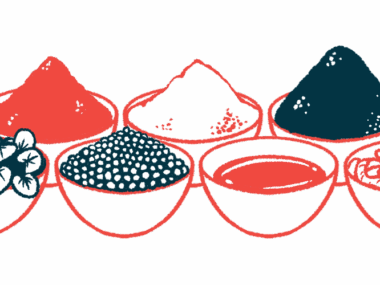NIH Grant Supports Work Into Microbiome, Cognitive Problems in Parkinson’s
Written by |

Carlos Amarillo/Shutterstock
A four-year, $441,000 grant from the National Institutes of Health (NIH) will support research into the role of the gut microbiome — the population of microorganisms living in the intestines— in neuroinflammation and memory loss in people with Parkinson’s disease.
The grant was given to scientists at California State University, San Bernardino (CSUSB), who will work with colleagues at the University of California Los Angeles, the University of California Riverside, and Loma Linda University Health.
Cognitive impairments and dementia are common non-motor symptoms of Parkinson’s, affecting up to 80% of all patients. Changes in gut bacterial composition are known in people with this disease, and a poorly regulated microbiome has been linked to both Parkinson’s motor and non-motor symptoms.
“Currently, scientists do not have a full understanding of why individuals with PD [Parkinson’s disease] develop memory/thinking problems,” Jacob Jones, PhD, an assistant professor with expertise in neuropsychology at CSUSB and a co-project leader, said in a university press release.
“As part of the new project, we will directly measure memory and other cognitive abilities as well as bacteria within the gut to see if the two are associated,” Jones added.
The gut microbiome is a growing area of interest in Parkinson’s research. One study found that some gut bacteria can interact with unabsorbed levodopa — a standard disease treatment — to cause gastrointestinal dysfunction.
Another study reported fecal transplants given to patients worked to ease their motor and non-motor symptoms, including constipation. These transplants involve restoring the diversity and richness of bacteria to the intestines, potentially aiding the gut-brain axis, which regulates gastrointestinal function.
“Various bacteria are potentially good for the human body, such as lactobacillus found in yogurt, but bacteria like E. coli can be harmful,” Jones said. “We hope to find an association between memory/thinking abilities and gut-bacteria to identify which bacteria are more important for brain health. It can potentially lead to novel interventions focused on restoring the gut-bacteria environment.”
Blood samples from study participants will be collect and analyzed for markers of inflammation.
“I am looking forward to seeing the effects of gut-microbiome on neuroinflammation, which is a novel research,” said Zhaojing Chen, PhD, an assistant professor in CSUSB’s department of kinesiology and a certified exercise physiologist. Chen is the project’s other co-leader.





